detail profile henry koster
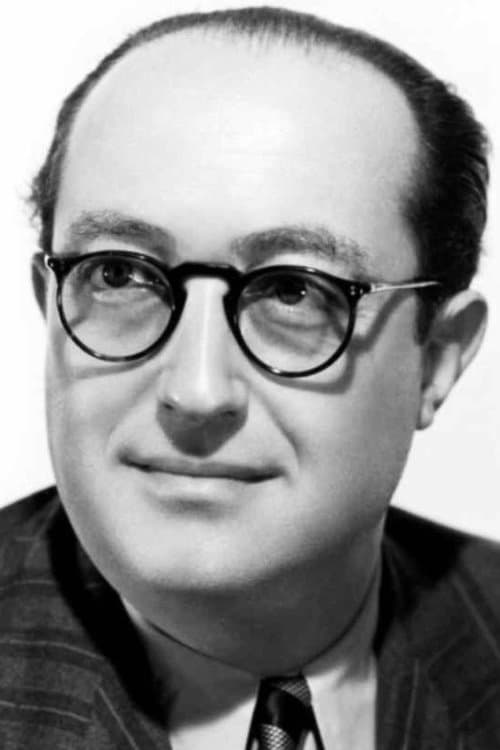
Henry Koster
Hermann Kosterlitz
atau dikenal sebagai
Riwayat Hidup
Henry Koster (May 1, 1905 – September 21, 1988), born Hermann Kosterlitz, was a German-born film director, who worked in Europe as well as in Hollywood.
Although he never won an Oscar, Koster directed six different actors in Oscar-nominated performances.
In 1932, Koster directed his first film in Berlin, the comedy Thea Roland.
In the midst of directing his second film Das häßliche Mädchen, Jewish Koster had been the subject of antisemitism, and knew he had to leave the country.
He left Germany for France, where he was rehired by director Curtis Bernhardt, who had also fled.
Eventually Koster went to Budapest, where he met and married Kató Király in 1934.
There he also met Joe Pasternak, who represented Universal in Europe, and directed three films for him.
Through his friend Gabriel Levy he ended up directing Dutch sound film De Kribbebijter, released internationally as The Cross-Patch, which proved a success both in the Netherlands - where it played in cinemas for no less than seven years - and in the UK.
Soon after, Koster signed a deal with Universal Pictures in Hollywood and moved to the United States.
Although Koster did not speak English, he convinced the studio to let him make Three Smart Girls, for which he personally coached to-be star Deanna Durbin.
This picture, a big success, pulled Universal out of bankruptcy.
Koster's second Universal film, One Hundred Men and a Girl, also was successful.
After this, Koster discovered Abbott and Costello at a nightclub in New York.
He returned to Hollywood and convinced Universal to hire them.
Their first picture was One Night in the Tropics; the female lead, Peggy Moran, became Koster's second wife in 1942.
Ironically, despite Koster's escape from Nazi Germany, when the United States entered World War II Koster was considered an enemy alien and had to stay in his house in the evening.
Actor Charles Laughton would visit Koster and play chess with him.
Nonetheless, Koster's postwar career proved equally successful.
He was nominated for an Academy Award for The Bishop's Wife (1947).
In 1950, he directed his biggest success: the James Stewart comedy Harvey.
He directed Richard Burton's first U.
S.
film, My Cousin Rachel, and then in 1953, he was given The Robe, the first CinemaScope film.
His last picture was The Singing Nun in 1965.
Koster retired to Leisure Village in Camarillo, California, where he painted a series of portraits of the movie stars with whom he worked.
Info Pribadi
Peran Yang Di Mainkan Henry Koster
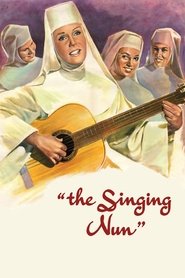 Belgian nun Sister Ann is sent...
Belgian nun Sister Ann is sent...The Singing Nun 1966
Belgian nun Sister Ann is sent to another order where she's at first committed to helping troubled souls, like Nichole and little Dominic. When Father Clementi hears Sister Ann's uplifting singing style, he takes her to a talent contest. Sister Ann is signed to a record deal and everyone is listening to her lighthearted songs. She is unprepared for her newfound fame (like appearing on The Ed Sullivan Show) and unwanted side effects, including a wrongful attraction to an old friend.
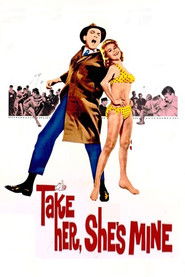 After reluctantly packing up his daughter...
After reluctantly packing up his daughter...Take Her, She's Mine 1963
After reluctantly packing up his daughter, Mollie, and sending her away to study art at a Paris college, Frank Michaelson gives new meaning to the term "concerned parent." Reading Mollie's letters describing her counter-culture experiences and beatnik friends, Frank eventually grows so paranoid that he boards a plane to Paris to see firsthand the kind of lessons his daughter is learning with her new artist amour.
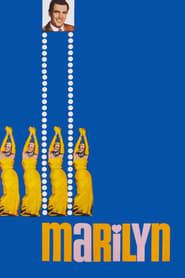 This 1963 documentary released less than a...
This 1963 documentary released less than a...Marilyn 1963
This 1963 documentary, released less than a year after Marilyn Monroe's death, showcases the star in memorable scenes from her 20th Century Fox films, including wardrobe tests and clips from her last, uncompleted project, "Something's Got To Give". Hosted and narrated by Rock Hudson.
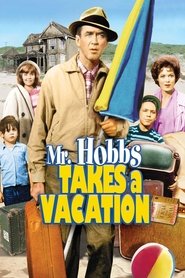 Banker Roger Hobbs wants to spend...
Banker Roger Hobbs wants to spend...Mr. Hobbs Takes a Vacation 1962
Banker Roger Hobbs wants to spend his vacation alone with his wife, Peggy, but she insists on a family vacation at a California beach house that turns out to be ugly and broken down. Daughter Katey, embarrassed by her braces, refuses to go to the beach, as does TV-addicted son Danny. When the family is joined by Hobbs' two unhappily married daughters and their husbands, he must help everyone with their problems to get some peace.
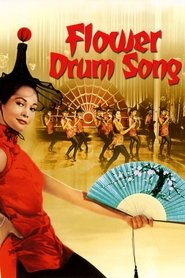 A young woman arrives in San...
A young woman arrives in San...Flower Drum Song 1961
A young woman arrives in San Francisco's Chinatown from Hong Kong with the intention of marrying a rakish nightclub owner, unaware he is involved with one of his singers.
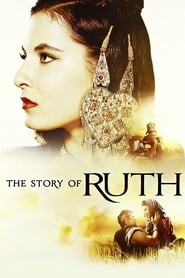 Ruth is one of two Moabite...
Ruth is one of two Moabite...The Story of Ruth 1960
Ruth is one of two Moabite women who marry the sons of Elimelech and Naomi. When Elimelech and sons Mahlon and Chillion die, leaving Naomi a widow with two widowed daughters-in-law, Naomi decides to return to Israel. One daughter-in-law, Orpah, bids her goodbye. Daughter-in-law Ruth however says she will not desert her.
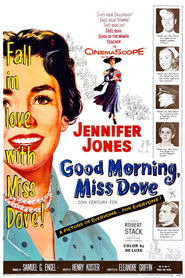 Miss Dove is a prim New...
Miss Dove is a prim New...Good Morning, Miss Dove 1955
Miss Dove is a prim New England school teacher who is treasured by her students in the small town of Liberty Hill. When she falls ill, a kindly doctor, who is a former student of Miss Dove's, comes to her aid. As many of her pupils, present and past, come to see her in the hospital, they reveal how Miss Dove has greatly impacted their lives over the years. These visitors include a police officer, a playwright, a banker, a convict, and an unmarried mother.
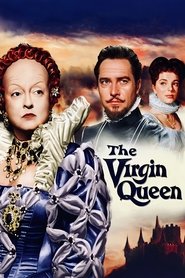 Sir Walter Raleigh overcomes court intrigue...
Sir Walter Raleigh overcomes court intrigue...The Virgin Queen 1955
Sir Walter Raleigh overcomes court intrigue to win favor with the Queen in order to get financing for a proposed voyage to the New World.
 Based on the true story of...
Based on the true story of...A Man Called Peter 1955
Based on the true story of a young Scottish lad, Peter Marshall, who dreams of only going to sea but finds out there is a different future for him when he receives a "calling" from God to be a minister. He leaves Scotland and goes to America where after a few small congregations he lands the position of pastor of the Church of the Presidents in Washington, D.C. and eventually he becomes Chaplain of the U.S. Senate.
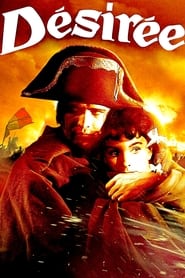 In Marseilles France in 1794 Desiree Clary...
In Marseilles France in 1794 Desiree Clary...Désirée 1954
In Marseilles, France in 1794, Desiree Clary, a young millinery clerk, becomes infatuated with Napoleon Bonaparte, but winds up wedding Genaral Jean-Baptiste Berandotte, an aid to Napoleon who later joins the forces that bring about the Emperor's downfall. Josephine Beauharnais, a worldly courtesan marries Napoleon and becomes Empress of France, but is then cast aside by her spouse when she proves unable to produce an heir to the throne.
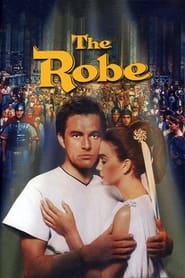 Drunk and disillusioned Roman Marcellus Gallio...
Drunk and disillusioned Roman Marcellus Gallio...The Robe 1953
Drunk and disillusioned Roman, Marcellus Gallio, wins Jesus' robe in a dice game after the crucifixion. Marcellus has never been a man of faith like his slave, Demetrius, but when Demetrius escapes with the robe, Marcellus experiences disturbing visions and feels guilty for his actions. Convinced that destroying the robe will cure him, Marcellus sets out to find Demetrius — and discovers his Christian faith along the way.
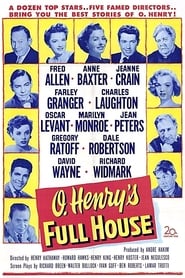 Five O Henry stories each separate...
Five O Henry stories each separate...O. Henry's Full House 1952
Five O. Henry stories, each separate. The primary one from the critics' acclaim was "The Cop and the Anthem". Soapy tells fellow bum Horace that he is going to get arrested so he can spend the winter in a nice jail cell. He fails. He can't even accost a woman; she turns out to be a streetwalker. The other stories are "The Clarion Call", "The Last Leaf", "The Ransom of Red Chief", and "The Gift of the Magi".
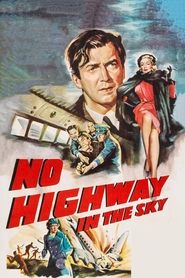 James Stewart plays aeronautical engineer Theodore...
James Stewart plays aeronautical engineer Theodore...No Highway in the Sky 1951
James Stewart plays aeronautical engineer Theodore Honey, the quintessential absent-minded professor: eccentric, forgetful, but brilliant. His studies show that the aircraft being manufactured by his employer has a subtle but deadly design flaw that manifests itself only after the aircraft has flown a certain number of hours. En route to a crash site to prove his theory, Honey discovers that he is aboard a plane rapidly approaching his predicted deadline.
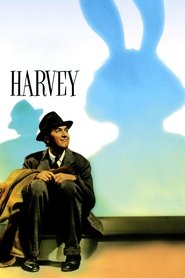 The story of Elwood P Dowd...
The story of Elwood P Dowd...Harvey 1950
The story of Elwood P. Dowd who makes friends with a spirit taking the form of a human-sized rabbit named Harvey that only he sees (and a few privileged others on occasion also.) After his sister tries to commit him to a mental institution, a comedy of errors ensues. Elwood and Harvey become the catalysts for a family mending its wounds and for romance blossoming in unexpected places.
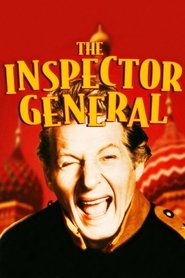 An illiterate stooge in a traveling...
An illiterate stooge in a traveling...The Inspector General 1949
An illiterate stooge in a traveling medicine show wanders into a strange town and is picked up on a vagrancy charge. The town's corrupt officials mistake him for the inspector general whom they think is traveling in disguise. Fearing he will discover they've been pocketing tax money, they make several bungled attempts to kill him.
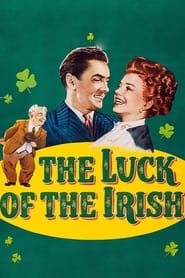 Following American reporter Stephen Fitzgerald from...
Following American reporter Stephen Fitzgerald from...The Luck of the Irish 1948
Following American reporter Stephen Fitzgerald from Ireland to New York, a grateful leprechaun acts as the newsman's servant and conscience.
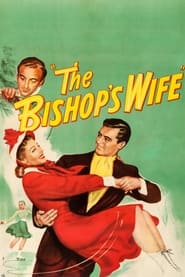 An Episcopal Bishop Henry Brougham has...
An Episcopal Bishop Henry Brougham has...The Bishop's Wife 1947
An Episcopal Bishop, Henry Brougham, has been working for months on the plans for an elaborate new cathedral which he hopes will be paid for primarily by a wealthy, stubborn widow. He is losing sight of his family and of why he became a churchman in the first place. Enter Dudley, an angel sent to help him. Dudley does help everyone he meets, but not necessarily in the way they would have preferred. With the exception of Henry, everyone loves him, but Henry begins to believe that Dudley is there to replace him, both at work and in his family's affections, as Christmas approaches.
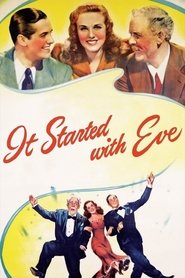 A young man asks a hat...
A young man asks a hat...It Started with Eve 1941
A young man asks a hat check girl to pose as his fiancée in order to make his dying father's last moments happy. However, the old man's health takes a turn for the better and now his son doesn't know how to break the news that he's engaged to someone else, especially since his father is so taken with the impostor.
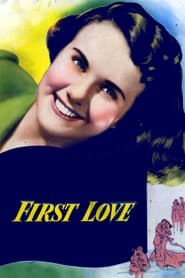 In this reworking of Cinderella orphaned...
In this reworking of Cinderella orphaned...First Love 1939
In this reworking of Cinderella, orphaned Connie Harding is sent to live with her rich aunt and uncle after graduating from boarding school. She's hardly received with open arms, especially by her snobby cousin Barbara. When the entire family is invited to a major social ball, Barbara sees to it that Connie is forced to stay home. With the aid of her uncle, who acts as her fairy godfather, Connie makes it to the ball and meets her Prince Charming in Ted Drake, her cousin's boyfriend.
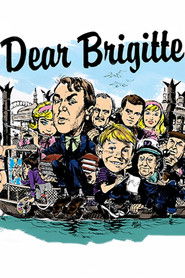 Professor Leaf an absentminded poet with...
Professor Leaf an absentminded poet with...